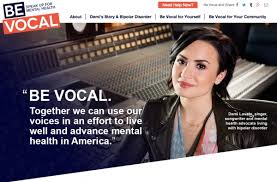 From My Files Friday: Three lessons we could learn from the LGBT Community.
From My Files Friday: Three lessons we could learn from the LGBT Community.
Mental health advocates can learn how to fight stigma and influence legislation by studying the LGBT Community. Recently, The Washington Post published an editorial by immigration activist Frank Sharry that explained how LGBT activists had given underdogs a blueprint for successfully changing public opinion.
We learned three crucial lessons from LGBT activists: We had to build a movement. We couldn’t be afraid to challenge our friends in power. And we had to give our cause a human face.
Let’s start with Sharry’s first point: building a movement.
We can’t build a national movement until we think beyond our own mental health silos and form a coalition. Reforming our fractured mental health care system requires us to demand more than traditional medical services. We need affordable housing, jobs, veterans’ assistance, drug and alcohol treatment programs, accessible transportation, jail diversion, alternative treatments, and hope.
Our cause has to be embraced by more than traditional mental health groups, such as the National Alliance on Mental Illness and Mental Health America, or stigma-fighters such as BringChange2Mind. Mental health has to become a national priority — not only for the American Psychiatric Association — but for the American Medical Association and dozens of other organizations that are impacted by mental health. That includes such stakeholders as the American Corrections Association, the National Sheriff’s Association, the National Education Association, and groups such as the AARP. All of them need to be brought under an umbrella. This shouldn’t be our problem. It should be everyone’s challenge.
Lesson two.
LGBT advocates showed us that the way to build power is by leveraging your competitive advantage. If money and votes are the currency of politics, their strength was in the former. LGBT contributors gave generously to political candidates and won themselves a seat at the table.
We need to buy our “seat at the table.”
I often hear people say that mental health advocates don’t have any money. That’s nonsense. Millions are given each year to mental health groups. Unfortunately, many of these huge gifts are doled out to individual, often competing groups each with their own narrow focus. What we need is a national mental health political action committee working politically for the good of all of us. Donating funds for research is noble, but in my myopic view, research should be financed by the National Institutes of Mental Health, SAMHSA and Big Pharma.
In addition to money, we need to flex our muscles through influence. We like to claim that one- in- four Americans experience a mental disorder in any given year. If true, then one-in-four of our nation’s most influential and wealthy struggle with mental disorders. We need to mobilize and begin using those powerful and wealthy sources to influence local, state and national elections. One reason why mental health parity was passed was because many of the politicians who endorsed it had family members with mental illnesses. We should remember that!
I dream of a day when presidential candidates will value the support of the mental health community enough to attend a NAMI or MHA national convention. Part of successfully raising money and buying our seat requires us to twist arms of our wealthiest and most influential. Another way is to broader our political base to include groups that have more clout (See point 1) and get them to join us in demanding legislative action.
Step Three.
The final lesson our (immigration) movement learned from the LGBT community may have been the most important. Gays and lesbians have created a monumental shift in American culture. They did it, first and foremost, by coming out to family and friends. They did it by infusing popular culture with popular characters, from Ellen to Will to Mitch and Cam. They did it by being brave and loud, out and proud.
Does that lesson apply to the mental health community as well?
It should. There should be no shame in having a mental disorder, only in not helping someone who does. Hollywood television shows and movies such as HOMELAND and the SILVER LINING PLAYBOOK are finally getting us away from the old, stigmatizing PSYCHO stereotypes. We must keep moving in that positive direction by putting a realistic face on mental illness and our families. And by complaining loudly when shows such as MODERN FAMILY continually present negative stereotypes. Boycott anyone?
Having a Glenn Close, Terry Bradshaw and a Demi Lovato on our side helps eliminate stigma.
But while rallying celebrities is helpful, the real power comes from us telling our individual stories — everyday people. A few years ago, I looked at the state’s mental health budget here in Virginia. Much of the spending went for services for persons with intellectual disabilities. One reason why is because the parents of children with intellectual disabilities were vocal, organized and fight hard. They called their legislators. They demanded services and equality. They were not embarrassed or timid.
Too often we let stigma keep us in the shadows when we should be equally as vocal.
Look how the LGTG community changed public perception.



